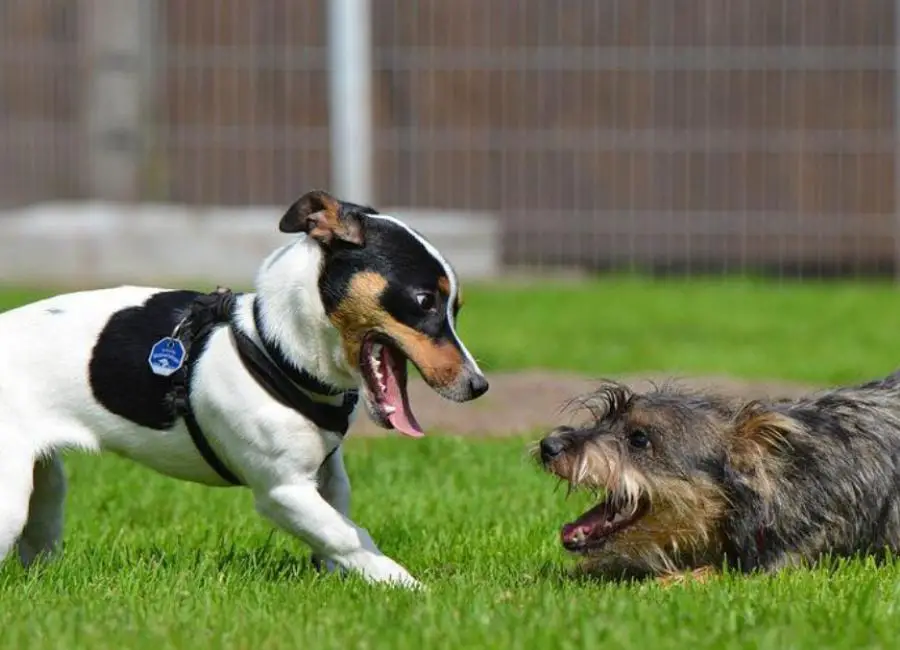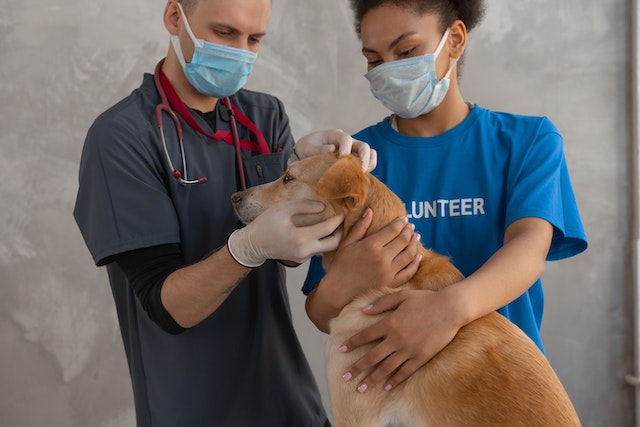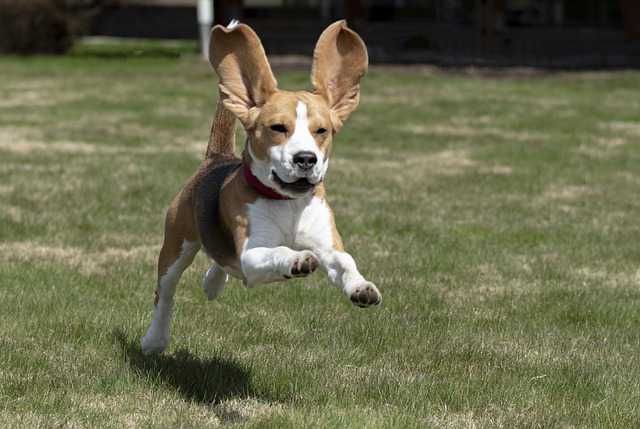9 Top Causes of Jack Russell Aggression & Tips

Jack Russell aggression can quickly become a big deal for owners who don’t have a clue of how to handle it.
People say Jack Russell terriers are aggressive just because of their hyperactivity level, but that’s not true.
For Jack Russell to become aggressive toward other pets or humans, something must have triggered Jack Russell aggression.
So, in this post, we will be discussing the causes of Jack Russell aggression and the common ways to prevent or fix Jack Russell aggression.
So, keep reading…
Are Jack Russell terriers aggressive?
Jack Russell terriers are high-energy hunting dogs that require lots of mental stimulation activities and can become aggressive if not properly exercised and socialize with other pets.
Jack Russell terriers may become violent in an effort to communicate their displeasure if left alone for an extended period of time without supervision.
So, to avoid saying your Jack Russell has become aggressive, please stay away from Jack Russell terriers if you can’t meet up with their energy levels.
Jack Russell terriers are super active dogs that should be kept busy, this means they can become frustrated and get aggressive if you don’t give them any form of exercise or mental stimulation.
Causes of Jack Russell aggression

Jack Russell terriers can become aggressive due to a lack of socialization, fear, anxiety, and—most significantly—the owner’s lack of training or behavioral knowledge.
The following are some of the most typical causes of Jack Russell aggression:
1. Lack of mental stimulation and exercise
You already know that Jack Russell terriers need a lot of brain-stimulating exercises because they are an active and industrious type of dog.
In the absence of suitable mental stimulation activities or regular exercise, Jack Russell terriers become bored and are more likely to become violent.
Hunting dogs like Jack Russell terriers need regular exercise to stay happy and healthy. They are not appropriate for those who are lethargic.
If you are sluggish, avoid obtaining a Jack Russell since boredom or loneliness enhance the likelihood of violent behavior in Jack Russells.
Put it this way, lack of any form of exercise or mental stimulation can quickly cause Jack Russell aggression.
2. Continuous changing of daily routine
Because they can become aggressive if not given adequate attention, Jack Russell terriers need their owners’ complete attention at all times.
Feeding your Jack Russell dog at the appropriate times, grooming him or her, taking him or her for walks, and spending time petting or snuggling with them are all examples of good Jack Russell care.
Instead of yelling at your Jack Russell when he misbehaves, gently reprimand him and make sure he understands.
Make that your Jack Russell has access to wholesome food and pure, fresh water.
By providing your Jack Russell with the attention, playtime, and grooming he or she needs, you can lessen the probability of aggressiveness.
The more you keep changing your Jack Russell daily routine the faster they become frustrated which can lead to Jack Russell aggression.
3. The side effect of separation anxiety
If a Jack Russell is kept alone from its owner for a long period, it may develop separation anxiety and behavioral problems.
Jack Russell terriers are a medium-sized breed that, shortly after their owners leave, may develop separation anxiety and begin to bark nonstop.
Despite the fact that little dogs are more prone to shout, it is unknown why certain dogs struggle with separation anxiety while others do not.
One of the most regular problems that Jack Russell owners have is this, and it’s often caused by a lack of basic training.
When kept apart from their owners for an extended period of time, Jack Russells get aggressive and start barking loudly or even bite.
If you keep leaving your Jack Russell alone unattended for too long they can develop separation anxiety which is one of the causes of Jack Russell aggression.
4. Chronic frustration
Frustration or melancholy is one of the most common triggers for canine aggressiveness, not just in Jack Russells but in all dogs.
When Jack Russell terriers are unhappy or depressed, they could bite, bark, chew things, or even try to flee the house.
A Jack Russell’s high degree of aggressiveness when unhappy is influenced by a number of things.
Lack of customary care, disrespect for your Jack Russell, spending too much time at home alone with him, etc.
As hunting dogs, Jack Russell terriers may get frightened and restless in response to loud noises or abrupt changes in habit.
All of this can result in exaggerated resentment and rage, which might subsequently show out as aggressive conduct.
When Jack Russell get frustrated due to their owner’s actions or their environment this can quickly turn into Jack Russell aggression.
5. Repeat of traumatic events
Traumatic situations are one of the most common reasons of aggressive behavior in Jack Russells, and dogs commonly encounter them.
Inquire about the dog’s background if you intend to adopt a Jack Russell because many rescue dogs have anxiety or post-traumatic stress disorder as a result of prior trauma.
Any Jack Russell that has experienced trauma in the past but was not fully healed is susceptible to behavioral problems.
Remember that Jack Russells that have lived in hostile or challenging circumstances are more prone to struggle with emotional problems.
As a conditioned self-protective response, they feel dread and wrath, which leads to excessively aggressive behavior in Jack Russells.
If a certain circumstance that led to a traumatic experience keeps reoccurring this can lead to Jack Russell aggression.
6. Certain Illnesses or pain
Aggression toward people or other animals around may increase in Jack Russells with long-term diseases like arthritis or joint pain.
Your Jack Russell may develop aggression in addition to brain tumors, seizures, neurological issues, or thyroid problems.
Such health problems may cause even the most well-behaved dog or the most peaceful Jack Russell to turn angry.
Visit a veterinarian as soon as possible if you think this is the reason for your Jack Russell’s aggressive behavior.
It could be difficult to recognize these problems on your own, so take your Jack Russell to the doctor for the attention they require.
Cognitive dysfunction in older Jack Russell if not properly handled can lead to Jack Russell aggression.
7. Intense fear or feeling threatened
The majority of Jack Russells become aggressive when they sense a threat, are unable to flee, and are forced to protect themselves.
This can happen if a Jack Russell is confined and unable to flee, or if he imagines being struck if a hand is placed over his head.
Be careful while approaching Jack Russells or, even better, wait for them to come to you to prevent provoking violent behavior.
To aid in preventing future anxiety, start socializing and training your Jack Russell puppy as soon as possible.
Jack Russells will attack neighboring persons or animals at any time of day or night if they feel threatened.
Jack Russell terriers are sometimes independent and feeling threatened, or intense fear can lead to Jack Russell aggression.
Poor socialization puts all dogs not just Jack Russell terriers at risk of aggression.
It can lead to a number of behavioral problems in Jack Russells, including excessive barking and a greater propensity for animal aggression.
If you wait until your Jack Russell is an adult or a puppy and don’t socialize with him, he may lack social skills.
If they are exposed to a range of animals, people, and environments, they might learn that nobody is a threat.
Simply said, poorly socialized Jack Russells are more prone to exhibit aggressive tendencies.
Simply say lack of socialization or poor socialization is one of the major reasons for Jack Russell aggression.
9. Lack of obedience training
Giving puppies the proper obedience training at a young age is the key to teaching Jack Russells and other dogs to stop harmful behaviour.
Poor obedience training is to blame for many instances of canine violence toward people, animals, or other dogs.
If you wish to reduce or eliminate hostility toward other dogs or people, you must properly teach your Jack Russell.
Through effective obedience training, you may teach your Jack Russell how to listen to commands and when to relinquish control of behavior.
Poor or lack of obedience training can be seen as a major cause of Jack Russell aggression.
How to prevent Jack Russell aggression
Although it is more straightforward to avoid Jack Russell aggressiveness than to stop it, we shall mix the two approaches.
Some strategies for avoiding or handling Jack Russell aggression include the ones listed below:
It is important to give your Jack Russell the chance to socialize with both people and canine companions, as this can help prevent Jack Russell aggression.
Introduce them to humans or other dogs in a responsible and safe manner.
Don’t forget to reward your Jack Russell if you’ve had good encounters with them, and they haven’t bothered you.
When your Jack Russell is with other people, keep an eye on them since they might get irritated or angry at any time.
If they’re aggressive, get rid of them right once to stop them from biting someone.
Don’t feed, touch, or carry your Jack Russell if they seem agitated or aggressive around other dogs or humans.
Jack Russell hostility toward people or other animals can be reduced via proper socialization.
2. Provide mental stimulation and exercise
Due to their hunting heritage, Jack Russell terriers need to be regularly exercised to avoid boredom and hostility.
If you don’t provide your Jack Russell enough mental and physical stimulation, they could pick up negative habits and behaviors.
Due to their sporting mentality, your Jack Russell will enjoy a daily regimen of 45–60 minute activities.
Take your Jack Russell on brief runs and strolls to help them burn off extra energy and promote healthy development.
Accessible toys, video games, TV shows, and other forms of entertainment are also available. These varied activities will keep kids happy and in good health.
Teach your Jack Russell to play the automatic retriever ball games with this.
3. Take care of your Jack Russell needs
The fact that Jack Russell terriers like receiving a lot of affection and attention may contribute to their lack of aggression.
When your Jack Russell behaves in a way you want, thank them; teach them that aggressiveness is poor behavior.
As a treat, give them cookies and thank them. If they keep acting in a way that you find insulting, ignore them for a time.
You must be persistent and patient in helping your Jack Russell determine the activities he enjoys and detests.
4. Follow a daily schedule that is effective
Avoid intruding on your Jack Russell’s space or at mealtimes if you want to help him become less aggressive.
Make a strategy and stick to it for your Jack Russell. Make sure to keep your Jack Russell amused while he isn’t napping.
Follow any dietary changes you make until you and your Jack Russell are both satisfied.
If you frequently alter the food of your Jack Russell, stick with what works for you right now.
5. Desensitize your Jack Russell of his fears
It would be fantastic if you could explain why Jack Russell acts aggressively as it can help you resolve your Jack Russell aggression.
Make their life as easy as you can for them by avoiding situations or behaviors that can turn them hostile.
Even while not all Jack Russell triggers for aggression may be avoided, the vast majority of them can with a little extra effort.
If your Jack Russell is afraid of other animals, it’s best to stay away from bringing them inside.
As an alternative, desensitize your Jack Russell to other dogs in order to show him that they are OK.
6. Always use positive reinforcement
You are reminding Jack Russell that this is what you expect from him when you praise him for a job well done.
These techniques for positive reinforcement encourage your dog to imitate your admirable actions, which will ultimately become a habit.
Using negative reinforcement methods, on the other hand, might be detrimental to your Jack Russell.
When training a Jack Russell, positive reinforcement is typically preferred to negative reinforcement.
7. Always avoid any form of harsh training
Many dogs grow even more aggressive as a result of harsh training methods like prongs, shock collars, and other such instruments.
If your Jack Russell refuses to follow strict training guidelines, never strike them in the face.
Slapping, hitting, or other harsh penalties only serve to increase your young dog’s fear or aggression.
When teaching a dog, try to avoid using harsh or punitive tactics; if your Jack Russell isn’t following instructions precisely, keep calm and try again.
8. Don’t punish for aggression
A punishment that is too harsh could just expedite the beginning of Jack Russell aggression.
Jack Russells, one of the smartest dog breeds, simply need a little bit of training and patience to live up to your expectations.
Never punish them if they don’t follow your corrections; just start the procedure over.
9. Talk to a professional
Jack Russell or other smaller breeds usually exhibit violent behavior that cannot be curbed by training alone.
Medication may be required to moderate your Jack Russell’s aggressive behavior.
It’s important to understand that if a dog is scared, anxious, or frightened, it won’t be able to learn new things.
Consider giving your Jack Russell drugs to help him or she overcome their phobia.
The majority of Jack Russell terriers only need treatment for a short while.
For more information and to have a better understanding of your Jack Russell aggression, see your veterinarian or an expert in animal behavior.
Signs of Jack Russell aggression
The following are some of the most typical hostile behaviors in Jack Russells:
- Persistent barking that is either loud or low-pitched.
- Snapping and hissing at objects nonstop
- In the company of other animals or when disturbed, your Jack Russell always stands tall.
- When other animals approach or agitate your Jack Russell, he keeps his ears raised.
- Progressively lunging movements while around people or other animals.
- Any provocation causes your Jack Russell to jerk its body stiffly from side to side.
- The Jack barks loudly when outsiders or other dogs approach.
- Sudden, needless tooth showing under certain circumstances.
My Jack Russell is out of control
Jack Russells get out of control when they become overly excited, due to a lack of mental stimulation activities or exercises, and their natural hyperactivity level.
You should train your Jack Russell to control its excitement levels and also provide lots of mental stimulation and exercises.
When your Jack Russell gets out of control don’t rule out medical issues, therefore you should visit a veterinarian.
Always bear in mind that Jack Russell terriers are hyperactive dogs that require regular mental stimulation activities and exercise.
My Jack Russell is suddenly aggressive
A multitude of things, including canine illnesses, stress, trauma, anxiety, fear, and changes in habit or surroundings, can lead to unexpected Jack Russell aggression.
Your Jack Russell may suddenly turn aggressive even with the right socialization and training, in which case the patient would need to treat him.
If you’re unsure of the cause of Jack Russell’s sudden aggression, you should consult a veterinarian to rule out any potential medical causes.
I hope with the information provided on this page your concerns about Jack Russell aggression will be resolved!






